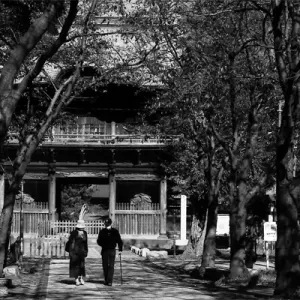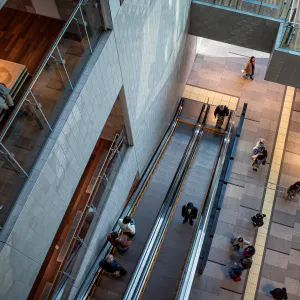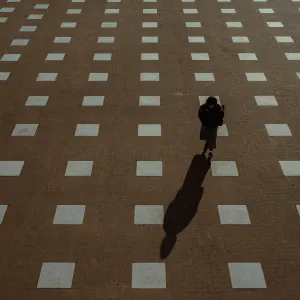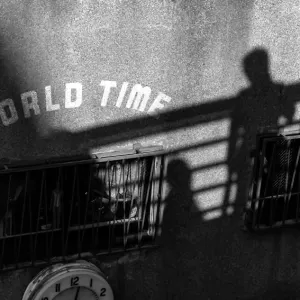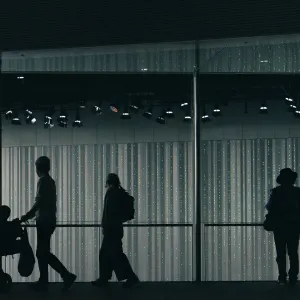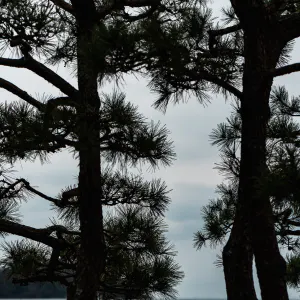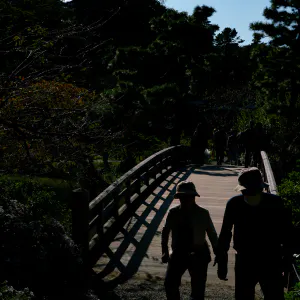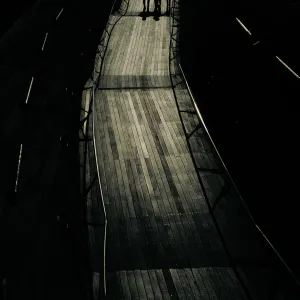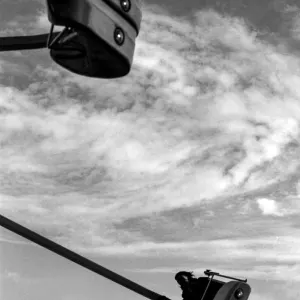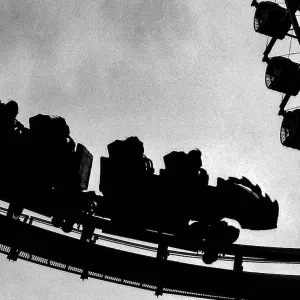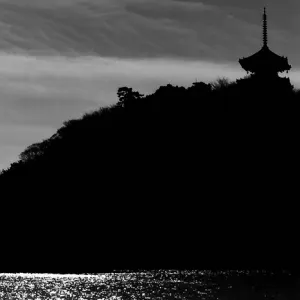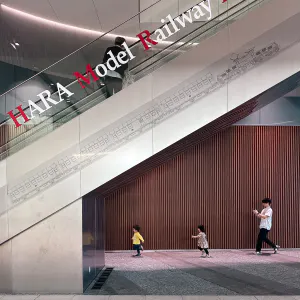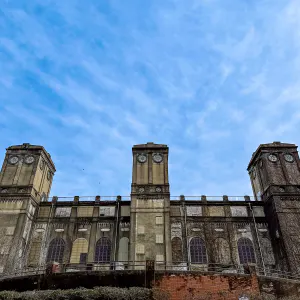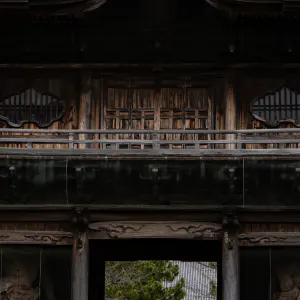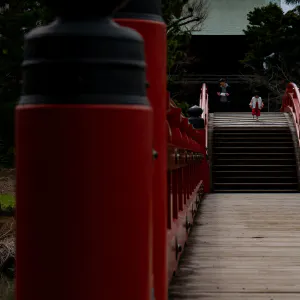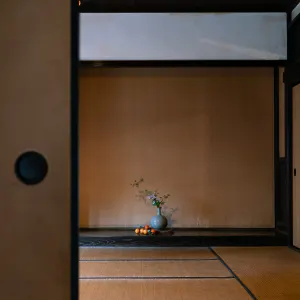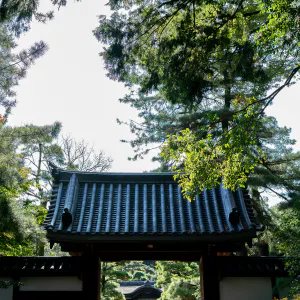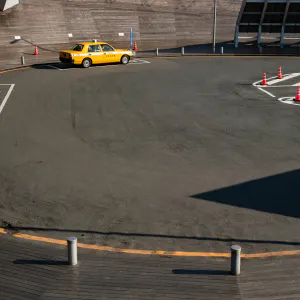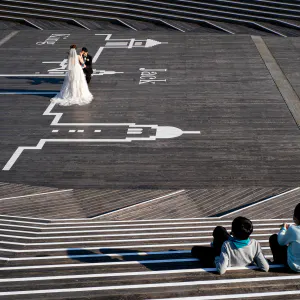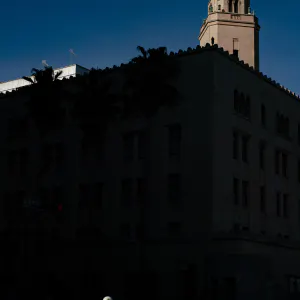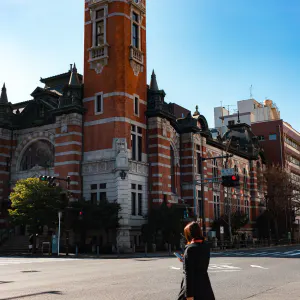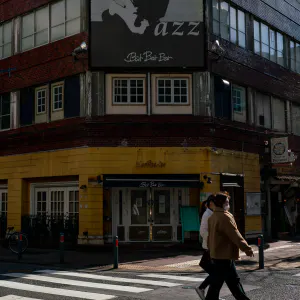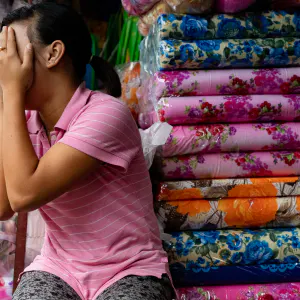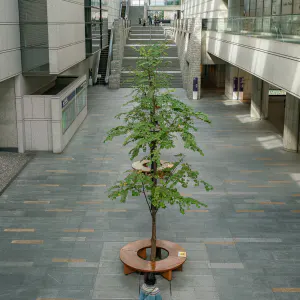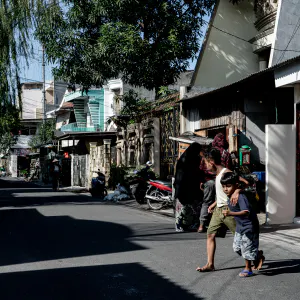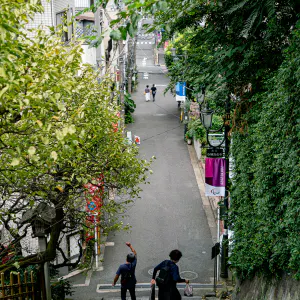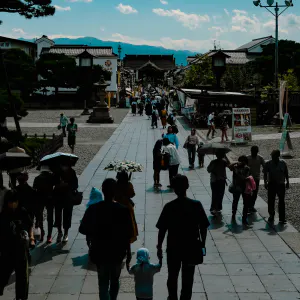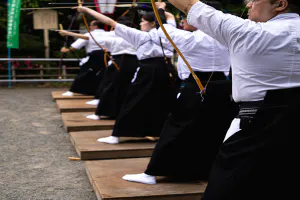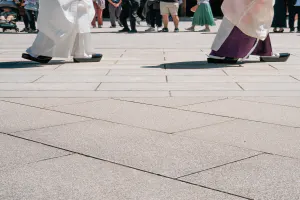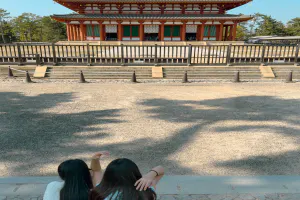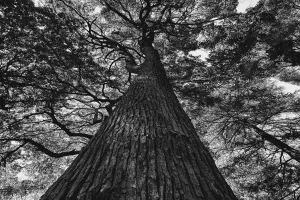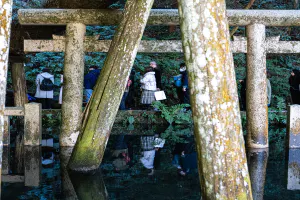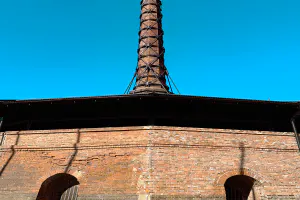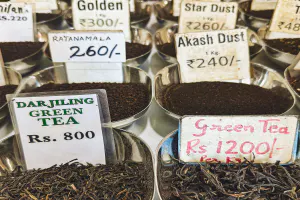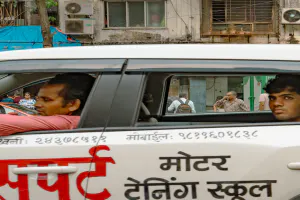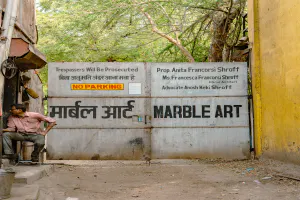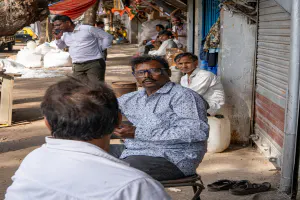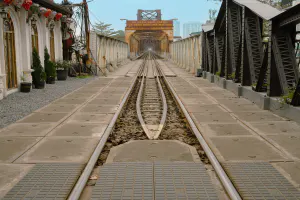At Bashamichi Station, people waiting inside the ticket gates were silhouetted against each other
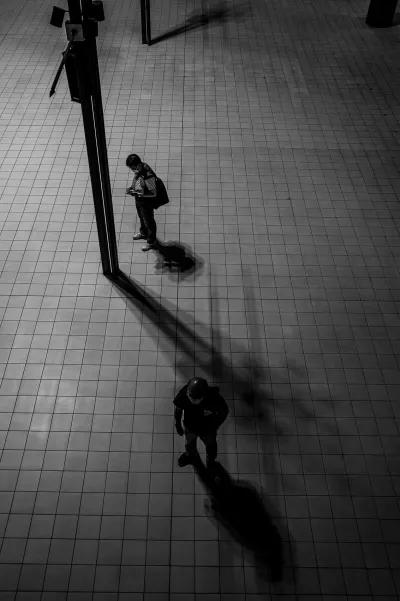
I got off the train at Bashamichi in Yokohama. Bashamichi means a carriage drive in Japanese and it is a wonderful name for a place. It is said to have been called Bashamichi because foreigners used to come and go in horse-drawn carriages in this area. Strangely enough, there were no horse-drawn carriages in old Japan. Samurai fought on horseback, and some warlords, like Shingen Takeda, had cavalry, but horse-drawn carriages did not appear in daily life. Therefore, the sight of foreigners riding around in horse-drawn carriages in the foreign settlement of Yokohama seemed strange to the Japanese.
The first foreign settlement in Yokohama was established when the Edo Shogunate signed the Japan-US Treaty of Amity and Commerce in 1858. In addition to Shimoda and Hakodate, which had already been opened, five other ports were to be opened: Kanagawa, Nagasaki, Niigata, Hyogo, Edo and Osaka. Yes, Yokohama was not on the list of ports to be opened according to the original plan. Instead, Kanagawa was on the list. Kanagawa is the name of a prefecture, but it was located in what is now Kanagawa Ward, Yokohama City, Kanagawa Prefecture.
However, to avoid conflicts between the Japanese and foreigners entering the port, the Shogunate referred to Yokohama as part of Kanagawa and opened the port by building port facilities and a settlement in Yokohama Village on the other side of Kanagawa port. It was a bit of a lie to avoid trouble. As a result, Yokohama, a mere cold village, swallowed up Kanagawa, a post town on the Tokaido Highway, and developed into one of the largest cities in Japan. It is the same as Shanghai in China, where a small village became a treaty port and developed.
| May 2021 IN THE CITY KANAGAWA | |
| SHADOW SILHOUETTE STATION YOKOHAMA |
PHOTO DATA
No
11922
Shooting Date
Sep 2020
Posted On
May 30, 2021
Modified On
August 22, 2023
Place
Yokohama, Kanagawa
Genre
Street Photography
Camera
RICOH GR III
